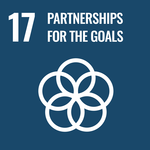Sustainable Development Goals
<p>The SCOPE-Trade project aims at addressing three important trade-related pillars which drive economic connectivity in the Association of Southeast Asian Nations (ASEAN) and between ASEAN and the European Union (EU) i.e., trade policy environment, digital connectivity for businesses with a focus on micro, small and medium sized enterprises (MSMEs), sustainable and resilient value chains. The project will be implemented with the ASEAN Secretariat as well as ASEAN Sectoral Bodies and Working Groups. It is part of and addresses the trade and economic priorities of the EU-ASEAN Sustainable Connectivity Package (acronym SCOPE), which seeks to improve sustainable connectivity between the EU and ASEAN, and within ASEAN. </p>





